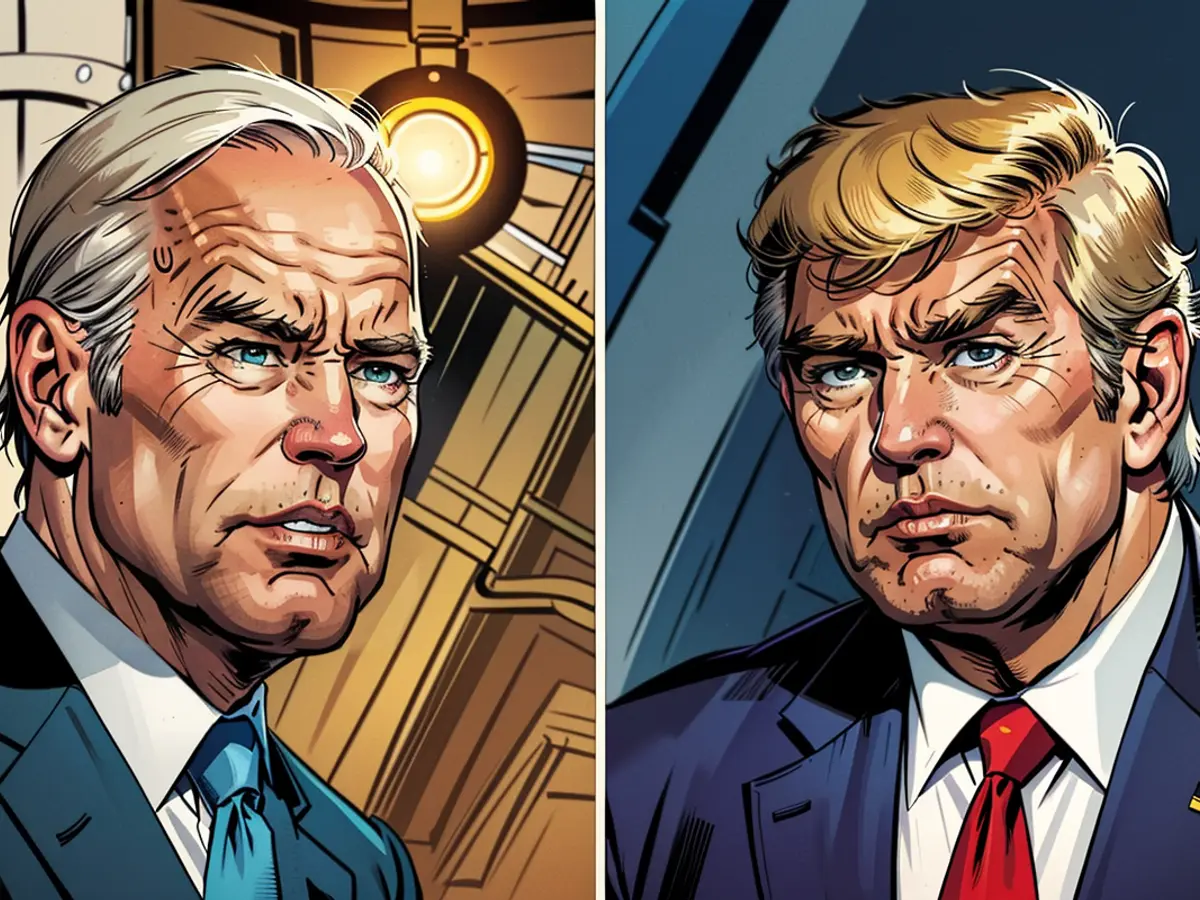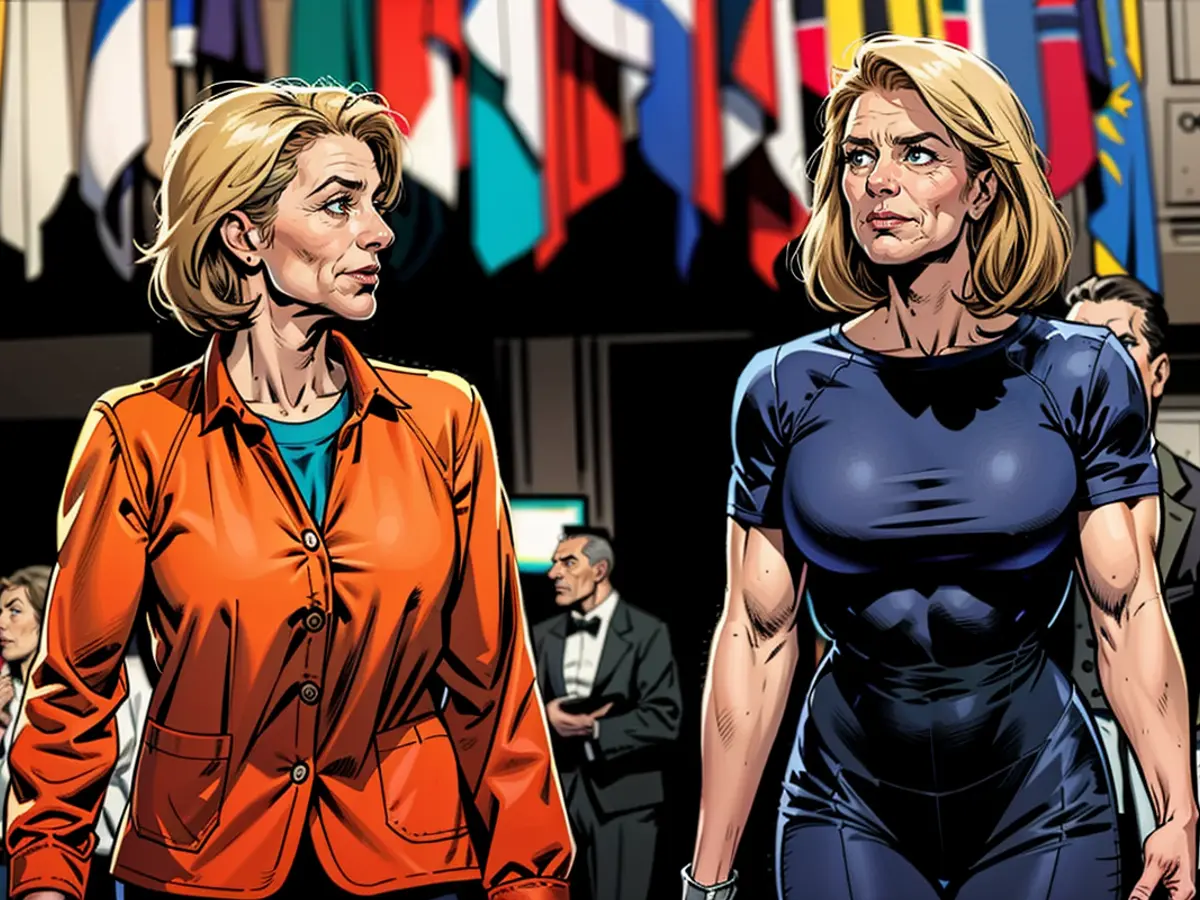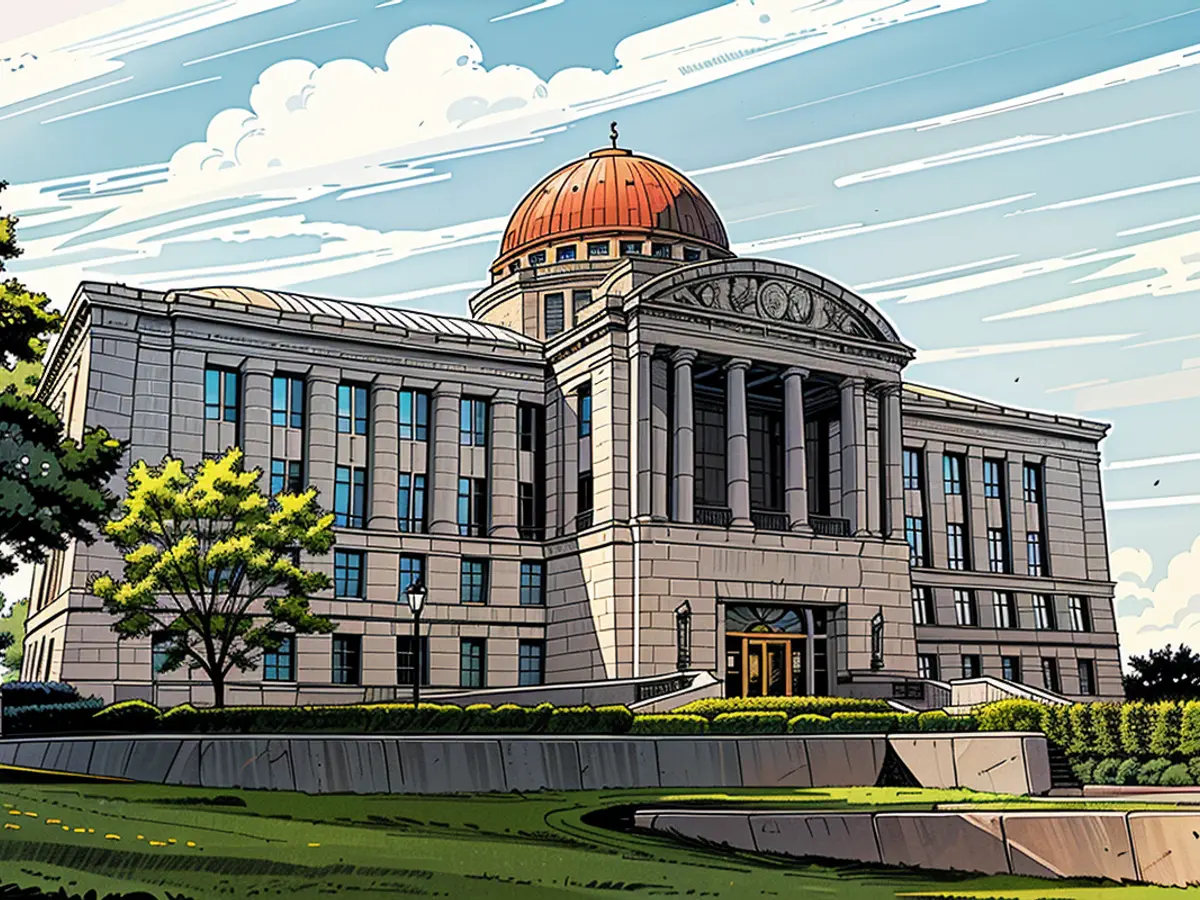The upcoming Biden-Trump debate will expose a critical juncture in the nation's path.
The Dramatic Groans of Al Gore, the Casual Glance of Disdain from George H.W. Bush towards his Watch, the Heavy Stubble on Richard Nixon's Face and the Imposing Presence of Donald Trump overshadowing Hillary Clinton have remained iconic even years after the political spats in their debates have faded.
Tonight's debate, hosted by CNN between President Joe Biden and former President Trump, could potentially be as dramatic as it is vital, given the intense dislike the two men share for each other. The policy aspects of a presidential debate have never been more crucial in this neck-and-neck White House race.
The nation is grappling with a precarious situation, divided internally over politics and culture, while dealing with multiple foreign policy crises. The choice in November will lead the country down one of two paths, much like in Robert Frost's poem, from which there may be no return.
An electric political atmosphere before a critical debate
Trump's aspirations to regain the White House, less than four years after attempting to manipulate the last election, pose a potential existential threat to the democratic system. Trump's conservative supporters are pushing for a regime change within the bureaucracy and the politicization of leadership posts in judicial and intelligence sectors to align with Trump's objectives.
On the other hand, although the economy is booming, many Americans are burnt out by high costs and the burden of debt. The legacy of the once-in-a-generation pandemic has left the country lacking the economic security that Biden promised to restore four years ago, but which remains out of reach for many. The Supreme Court's overturn of the constitutional right to an abortion two years ago has stirred an ideological and religious divide over reproductive rights that Biden plans to exploit to damage Trump. However, Biden is equally vulnerable over the immigration crisis on the southern border that has overwhelmed the outdated asylum laws designed to handle a new wave of migrants fleeing gangs, economic hardship, and climate disasters.
Abroad, the global system built on American power for 80 years is under immense pressure from adversaries aiming to dismantle it, such as Russia and the emerging superpower China. Biden has focused his term on expanding NATO to counter Russia's aggression against Ukraine and its threat to wider Europe. In contrast to Trump, Biden has intensified a military and diplomatic shift to counter China, although Trump's tariff war with China would exceed Biden's attempts to prevent a new Cold War from escalating into a hot war.
Israel's conflict in Gaza, which is constantly on the brink of erupting, is a sensitive issue for a sitting president, as Trump accuses Biden of appearing weak. Trump's criticism may resonate with some voters, but his own plans are as vague as his unexpected plan to end the Ukraine war in 24 hours and his unverified claim that conflicts in Europe and the Middle East would never have occurred if he were still president.
And Trump seems more comfortable with authoritarian leaders like Russian President Vladimir Putin and North Korean leader Kim Jong Un, who wish to undermine American power, than democratic allies America saved during the last global conflict. Some of Trump's former White House officials warn he might attempt to withdraw the United States from NATO, the cornerstone of Western security, if he returns to the White House. Voters must, therefore, decide between Biden's traditional foreign policies and a continuation of Trump's populist isolationism that transformed the United States from a beacon of global stability to a volatile source of instability.
Legacies on Display
For the first time in American history, two presidents will appear together on a debate stage, exposing their legacies for all to judge. (The only other time a former and current president competed for a second term was in 1892, when candidates didn’t actively campaign, let alone debate one another.) This meeting of incumbents is one most voters would prefer to avoid. And so far, their fears seem to be confirmed. The tight race means two candidates, both well into their eighties, are struggling to demonstrate their policy solutions to address the nation's problems. And neither has presented a clear vision to create a roadmap for the future that millions of Americans will inhabit long after both have left office.
Trump's first term and limited legislative achievements reveal that he views the presidency as a platform for his personal impulses rather than a policy workshop. But his campaign, along with affiliated conservative groups, has drafted plans that, if implemented, would significantly change American governance. And a second-term administration stripped of restraining influences that confounded Trump means he would have greater liberty to carry out his wishes.
One irony of Trump's first term and second term proposals is that while he has steered the Republican Party away from its corporate roots towards a more working-class orientation, he champions policies that predominantly benefit wealthier Americans like himself. In his first term, he enacted tax cuts that favored the well-off, and he intends to prolong them if he secures the White House again. Earlier this month, in an apparent bid to gain the support of hospitality workers in the crucial state of Nevada, he pledged to abolish federal taxes on tips. And while he advocates for a draconian immigration policy, including mass deportations of undocumented migrants, Trump also proposes more green cards for foreign graduates of American colleges – a move that may win favor among increasingly influential South Asian voters.
The ex-president hints at replacing Federal Reserve Chair Jerome Powell, which could stir worries about political control in the central bank, but could also gratify citizens yearning for interest rate reductions. The ex-president is making an effort to stir up a longing for the Trump administration's economy that flourished prior to the economic hardship brought on by the pandemic.
If he manages to tone down the drama during his speech on Thursday night, the ex-president might reconnect with viewers who've distanced themselves due to his extreme actions but who yearn for economic ease. Nevertheless, Biden is expected to argue that some of Trump's proposals would be financially disastrous, such as a proposed 10% duty on overseas goods, which economists caution could revive inflation and increase the price of goods for US consumers.
Biden has a bustling policy apparatus.
On a regular basis, the president or Vice President Kamala Harris highlights a new aspect of the administration’s aim to fulfill its promises to revamp the economy, boost working Americans, reduce health care costs, cap drug prices, create jobs, combat climate change, safeguard abortion rights, decrease student debt, and cut energy costs.
However, it's a drawback of Biden's term that his accomplishments seldom receive recognition despite a legislative record that matches or even surpasses that of any Democrat since President Lyndon Johnson. Some of this may stem from the fact that initiatives like Biden’s bipartisan infrastructure plan may take several years to completely materialize.
The president is yet to find a way to claim credit for an economy that rebounded more vigorously from the Covid-19 crisis than those of other developed nations, while also acknowledging the hardship many voters still face. High grocery prices serve as a literal and psychological obstacle — even though the worst inflation crisis in 40 years has now subsided. It's tough for numerous Americans to afford a new vehicle or a mortgage due to high interest rates implemented to lower the cost of living. This puts Biden in a tight spot, requiring him to use Thursday's debate to persuade voters that he can improve their lives quickly.
He's attempted it once before. During his State of the Union address in March, Biden praised citizens for composing "the greatest comeback narrative." Yet, it failed to boost his political standing. In an ABC News/Ipsos poll conducted in late April, voters trusted Trump more than Biden on the economy and inflation, their top two concerns, by margins of 46% to 32% and 44% to 30%.
After the debate, analysis will concentrate on the best quips, catchy lines, and the endurance and vitality of the rival candidates. However, the true impact of the clash between Trump and Biden will only become apparent after noon on Inauguration Day, January 20, 2025.





